Are you looking for a specific topic? Use the search function at the top right.
Sind Sie auf der Suche nach einem bestimmten Thema? Nutzen Sie die Suchfunktion oben rechts.
Wenn Sie unser Magazin kostenfrei abonnieren möchten, schicken Sie eine Mail mit dem Betreff FELD und Ihren Kontaktdaten an: feld@zalf.de.
Sie möchten die neuen FELD-Ausgaben lieber online nachlesen?
Dann registrieren Sie sich für den Newsletter auf unserem Online-Blog zum Magazin: www.quer-feld-ein.blog
FELD 01/2022
- Text
- Articifial intelligence
- Precision farming
- Intensification
- Patchcrop
- Biodiversity
- Climate
- Agriculture
- Farmers
- Ecosystem
- Zalf
- Researchers
- Sustainable
- Landscape
- Soil
- Agricultural
Ecosystem Services
Ecosystem Services Ecosystem Services The banks of streams and small water bodies are biodiversity hotspots: this is where beneficial organisms live, for example insects feeding on wild herbs in adjacent fields. Agriculture benefits from these landscape structures, but influences them at the same time. To me, the loss of ecosystem services and biodiversity is just as dramatic as climate change. PROF. BETTINA MATZDORF IT MUST BE DONE TOGETHER Bettina Matzdorf is convinced that it is about time to pay more attention to ecosystem services. »For me, the loss of ecosystem services and biodiversity is just as dramatic as climate change«, she emphasizes. In 2015, she co-founded the innovation network »Ecosystem Services Germany« (ESP-DE) to advance research and debates on this topic. It is clear to the researcher: solutions can only be developed together with the farmers. In »contracts2.0« — a current EU project — she is collaborating with the German Farmers’ Association and more than twenty European partners from research and practice to investigate how farms can be better rewarded for protecting ecosystem services on their land in the future. »What is new about our approach is that farmers are not paid for specific measures, but for concrete results«, explains Bettina Matzdorf. In the future, payments could therefore be granted if, for example, biodiversity in agricultural regions is improved. Text: Heike Kampe THE RESEARCHERS Claudia Bethwell’s project partners are developing a software package for this purpose: With just a few clicks, farmers will be able to see, for example, whether it might be worthwhile to improve their water management or opt for soybean instead of wheat, or which strategy may be suitable for reducing their greenhouse gas emissions while also promoting soil fertility. The web app is expected to be available free of charge to farms from mid-2022 onwards. Prof. Bettina Matzdorf is co-head of the Research Area 2 »Land Use and Governance« at ZALF and holds a professorship for »Ecosystem services — Economic and Planning Aspects« at the university of Hannover. Geographer Claudia Bethwell is a member of the working group »Provisioning of Biodiversity in Agricultural Systems« at ZALF. 18 19
- Seite 1 und 2: FELD MAGAZINE OF THE LEIBNIZ CENTRE
- Seite 4: TITLE STORY AGRICULTURAL CHECKERBOA
- Seite 8: patchCROP patchCROP For ten years,
- Seite 12: patchCROP patchCROP First and forem
- Seite 16: Ecosystem Services Ecosystem Servic
- Seite 22: Patchcrop Patchcrop MORE DIVERSITY
- Seite 26: Sustainable intensification Sustain
- Seite 30: Sustainable intensification Sustain
- Seite 34: Interview WHO PAYS THE BILL? The ch
- Seite 38: Artificial Intelligence Artificial
- Seite 42: Mission of the Leibniz Centre for A
Unangemessen
Laden...
Magazin per E-Mail verschicken
Laden...
Einbetten
Laden...
FELD (dt.)
Neu im querFELDein-Podcast
Would you prefer to read the new FELD issues online?
Then register for the newsletter on our online blog: www.quer-feld-ein.blog

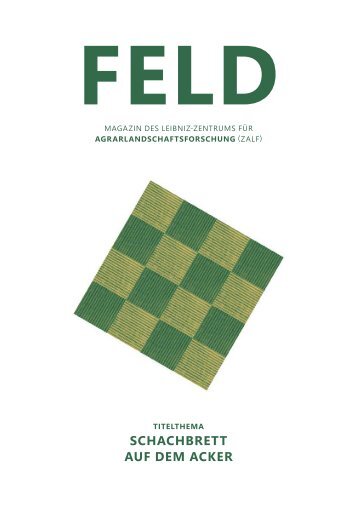
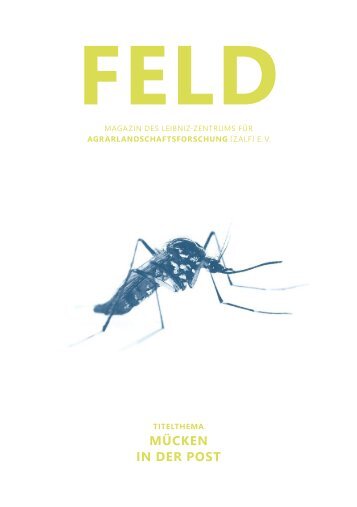
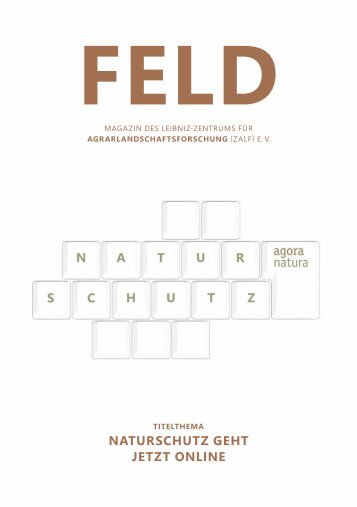
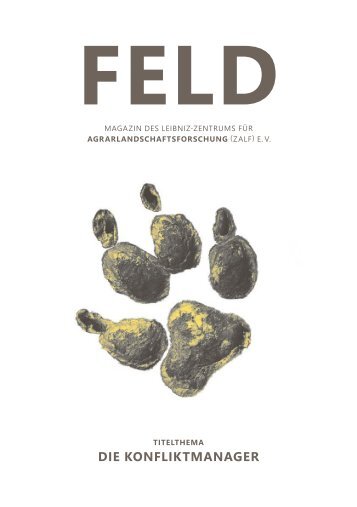
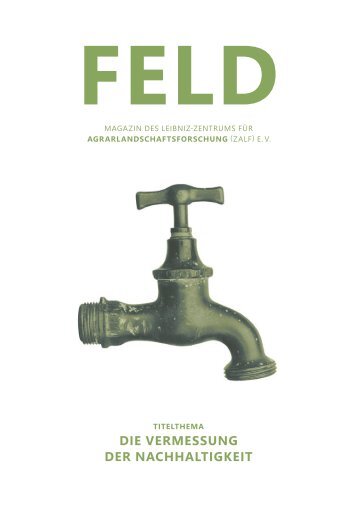
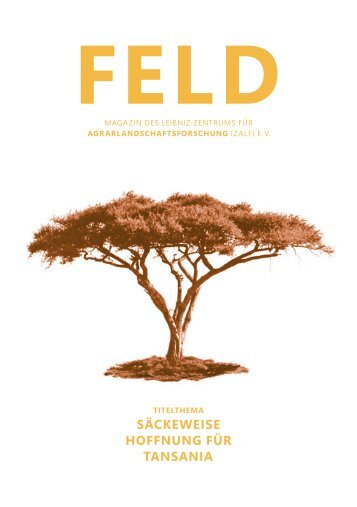
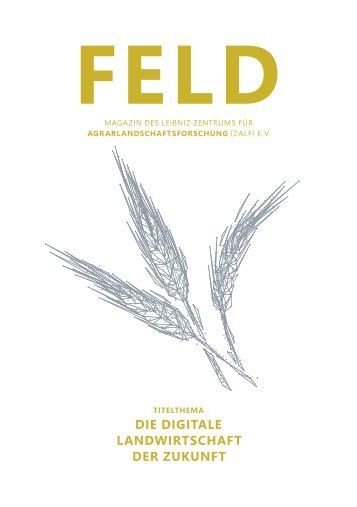
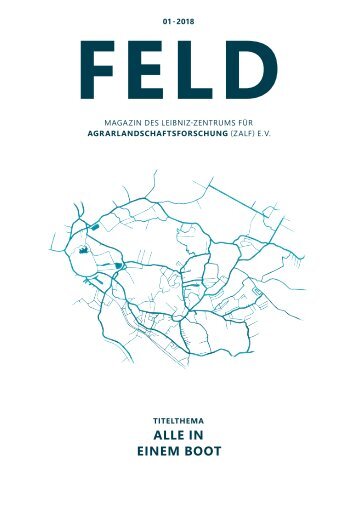
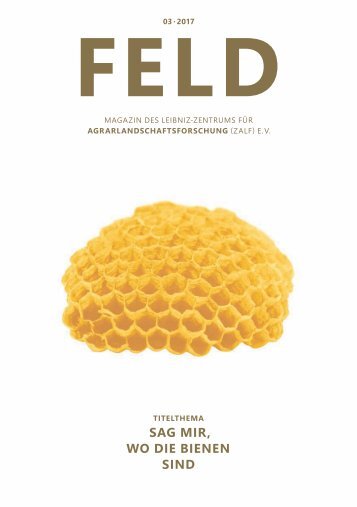
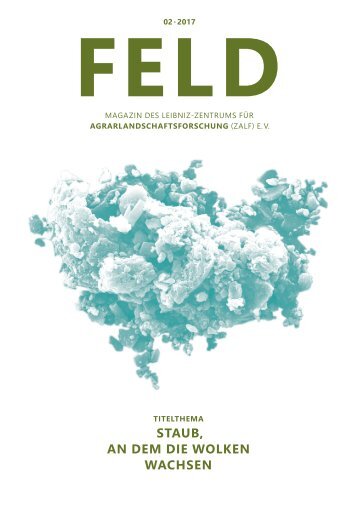

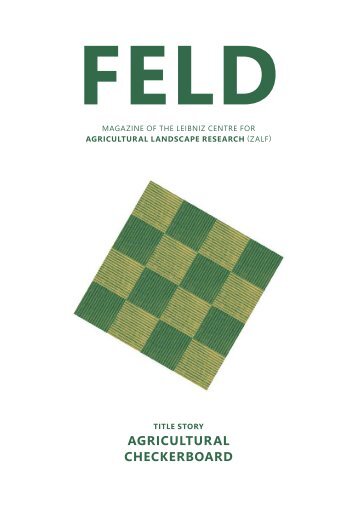

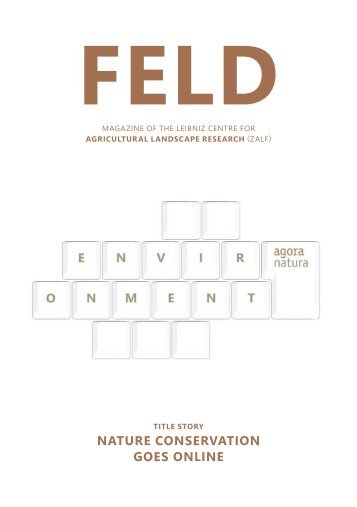








FOLLOW US
Twitter
Youtube
Instagram
LinkedIn